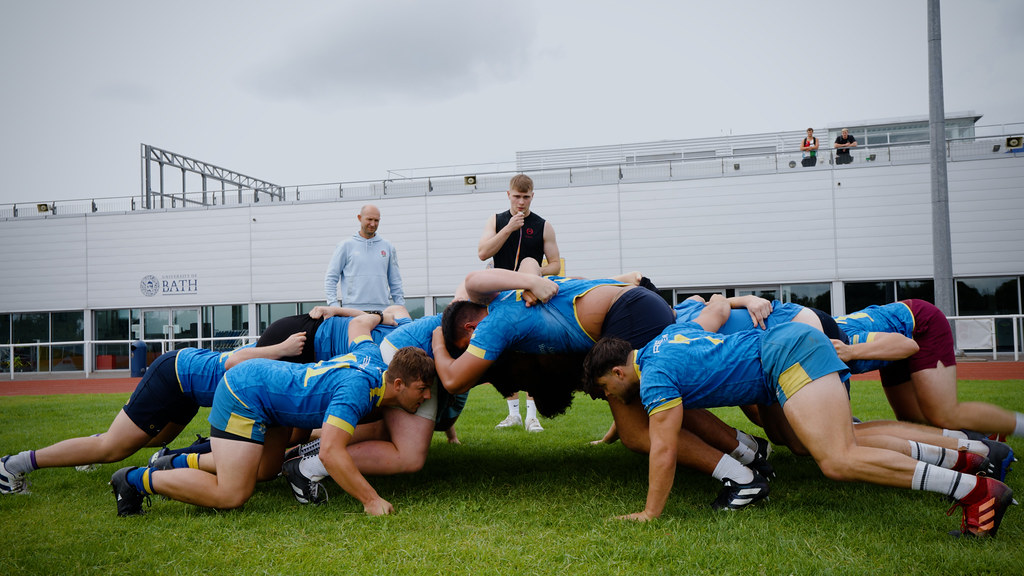
Part of Bruce’s gift has been used to fund a project focusing on measuring the impacts experienced during rugby using wearable devices: an augmented rugby shirt with sensors sewn into the fabric, and a sensor-equipped mouthguard. This research sees Keith teaming up with Professor Eamonn O’Neill, Head of our Department of Computer Science.
“Through projects with the Rugby Football Union and Premiership Rugby, we have deployed the mouthguards in over 600 male and female rugby players in the Premiership and Premier 15s (now Premiership Women’s Rugby), as well as 100 youth rugby players” says Keith.
“This is new off-the-shelf technology that will develop rapidly over the coming years and this collaboration between health and computer science will enable us to carry out really detailed analysis of exciting and novel data.”
The data will be used to monitor the different forces applied to players’ bodies, such as acceleration and impact, and will provide insight to help inform player management in pursuit of a safer game for all.
Rasita Pokairat, one of the MSc Data Science students working on the project, adds:
“This could be applied to specific areas of rugby, such as tracking concussions, or to broader areas, such as assessing player performance or designing training programmes. It’s a real opportunity to improve player safety and success.”
Keith’s research is already having a real-world impact by enhancing players’ safety through the ‘Crouch, Bind, Set’ approach for scrums, which was trialled and implemented globally as a new rugby law from 2014. He was also central in the development of Activate, the first rugby-specific injury prevention exercise programme, which reduced concussions by up to 60% in controlled studies.
Keith says:
“Now we’re scaling up our ambitions to reduce injury by partnering with the University of Edinburgh through the International Olympic Committee’s UK Collaborating Centre on Injury and Illness Prevention in Sport. By working together, we’re helping to change the game, making it safer for players now and into the future to enjoy.”
